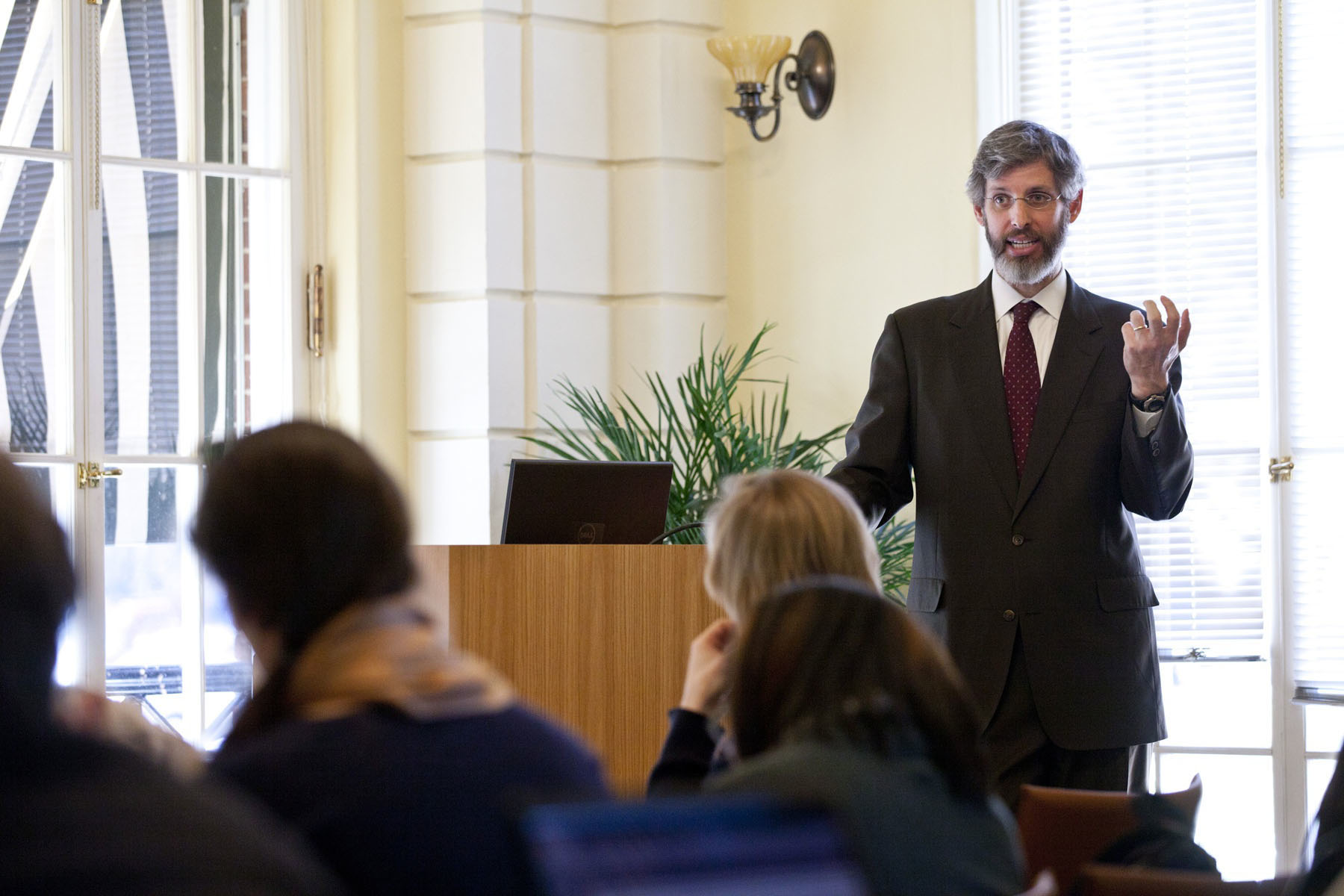February 17, 2012 — Five anti-poverty initiatives in Charlottesville may be getting a grant-funding boost this year, thanks to a new course in the University of Virginia's Frank Batten School of Leadership and Public Policy.
The course's 45 students are working in small teams to research grant funding opportunities for five local nonprofits. As a final project, each team will write a grant application, explained Christine Mahoney, assistant professor of politics and public policy in the Batten School.
One of the initiatives is Charlottesville's "City of Promise" coalition of area nonprofits including Children, Youth & Family Services, which recently won a $470,259 planning grant from the federal Promise Neighborhood program – opening the door for a more detailed application, which the students will help draft, for a Promise Neighborhood implementation grant worth at least $4 million.
The federal Promise Neighborhoods program, launched in 2010 by President Obama, seeks to replicate the success of the Harlem Children's Zone, helping students and families in high-poverty communities with "coordinated health, social, community, and educational support from the cradle to college to career," as the program's website explains.
"Not all the results are in, but it's been pretty successful so far," said Batten fourth-year student Kathryn Lawryszek, who is interested in education policy and will be working with the City of Promise. The class recently studied the Harlem Children's Zone, and "the fact that they are considering implementing it here is pretty exciting."
"The Batten students will be seeking to secure real money for the community that could bring about real change," Mahoney said. "They will be applying for grants worth anywhere from tens of thousands of dollars up to millions of dollars, in the case of City of Promise."
Nonprofits often struggle to find the staff hours needed to write grant applications, so the students' efforts address a real need, said Dan Nagin, a spokesperson for Bank On, another initiative the students are assisting.
The Bank On program is a partnership between local government, financial institutions and community organizations that provides mainstream banking services to those who currently rely on "fringe" banking and lending services like payday loans, which charge very high interest rates, Nagin explained during a Feb. 9 class in Garrett Hall.
"We wanted to create opportunities for the students to work more with local non-profits, but in a way that the deliverable was something quite useful to the non-profit," Mahoney said. In the process, the students are gaining a valuable skill and experience.
"This is the most applied, practical course I've taken during my U.Va. career," said Patrick Fitzsimmons, a fourth-year who is working with the Orange Dot Project. "We're dealing with real money and real clients."
"Grant writing is a very relevant and applicable skill you can put on a resume," said Henry Byron Furtick, a first-year in Batten's two-year master's of public policy program. He is working with the felon re-entry program Offender Aid and Restoration/Jefferson Area Community Corrections, which helps offenders make the transition from incarceration to the community.
The grant writing project seemed like a natural addition to the course, "Political Institutions & Processes," part of the Batten School's core curriculum, Mahoney said, because it provides a real-world example of one of the course's key themes: Learning how solving many public policy problems requires partnerships among government, non-profits and the for-profit sector.
The 45 students are divided into 15 teams of three, with three teams assigned to each non-profit. The teams will produce multiple reports on funding opportunities for each non-profit, which will then choose the best option to pursue. Then each team will draft an application for the chosen grant, and the best will be selected by their class peers, along with the non-profit leaders.
In the process, the student teams will meet multiple times with the non-profit they are serving, including site visits to a house being rehabilitated by the Albemarle Housing Improvement Program and to Westhaven, Charlottesville's first public housing project and a focus for the City of Promise efforts.
Mahoney selected the five anti-poverty initiatives with the help of two friends who have extensive experience working with Charlottesville's non-profit organizations: Mike Murphy, director of human services for the city of Charlottesville, and Paul Martin, Batten's director of professional development and alumni relations, who formerly chaired Charlottesville's Community Development Block Grant Taskforce overseeing the disbursement of nearly $2 million annually in city, state and federal grants for community housing and social programs.
If next fall's iteration of the course retains this grant-writing element, as Mahoney hopes, she plans to work with the Center for Nonprofit Excellence and the Charlottesville Area Community Foundation to offer the service to a broad array of the area's nonprofits.
– by Brevy Cannon
Media Contact
Article Information
February 19, 2012
/content/win-win-local-nonprofits-students-both-gain-grant-writing-course

